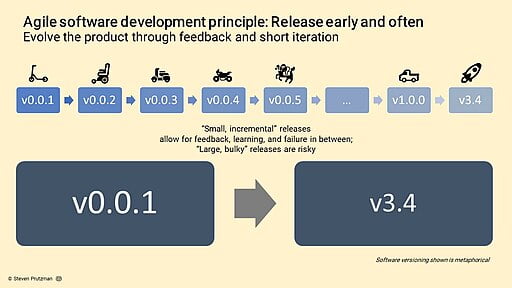Agile software development is an approach to project management
Emphasizes adaptability, flexibility, and continuous improvement. It’s a popular choice for software development projects where requirements may be uncertain or change frequently.
Here are the key principles:
- Iterative development: The project is broken down into smaller, iterative cycles called sprints. Each sprint typically lasts a few weeks and focuses on delivering a specific set of features.
- Focus on working software: The goal of each sprint is to deliver a functional piece of software that can be tested and used by stakeholders.
- Customer collaboration: Throughout the development process, there is close collaboration between the development team and the customer. This ensures that the software is being built to meet the customer’s needs.
- Embrace change: Agile development recognizes that requirements may change throughout the project. The team is encouraged to be adaptable and to welcome changes that improve the final product.
- Continuous improvement: The team reflects on each sprint and identifies areas for improvement. These improvements are then implemented in subsequent sprints.
Here are some of the benefits of using this method of software development:
- Faster time to market: By delivering working software in short iterations, agile development can help get products to market faster.
- Improved quality: The focus on close collaboration and continuous improvement can help to ensure that the final product is of high quality.
- Increased flexibility: Agile development is well-suited for projects where requirements may change. The team can easily adapt to changes and incorporate them into the development process.
- Improved team morale: The collaborative nature of agile development can help to boost team morale and create a more positive working environment.
Some common methodologies include:
- Scrum: A popular agile framework that uses short sprints, daily stand-up meetings, and backlog prioritization.
- Kanban: A visual method for managing work that focuses on limiting work in progress and optimizing workflow.
- Extreme Programming (XP): An agile methodology that emphasizes close collaboration between developers and customers, as well as continuous testing and refactoring of code.
Overall, agile development is a flexible and adaptable approach to software development that can help teams deliver high-quality software faster.
Image credit
Steveprutz, CC BY-SA 4.0, via Wikimedia Commons

